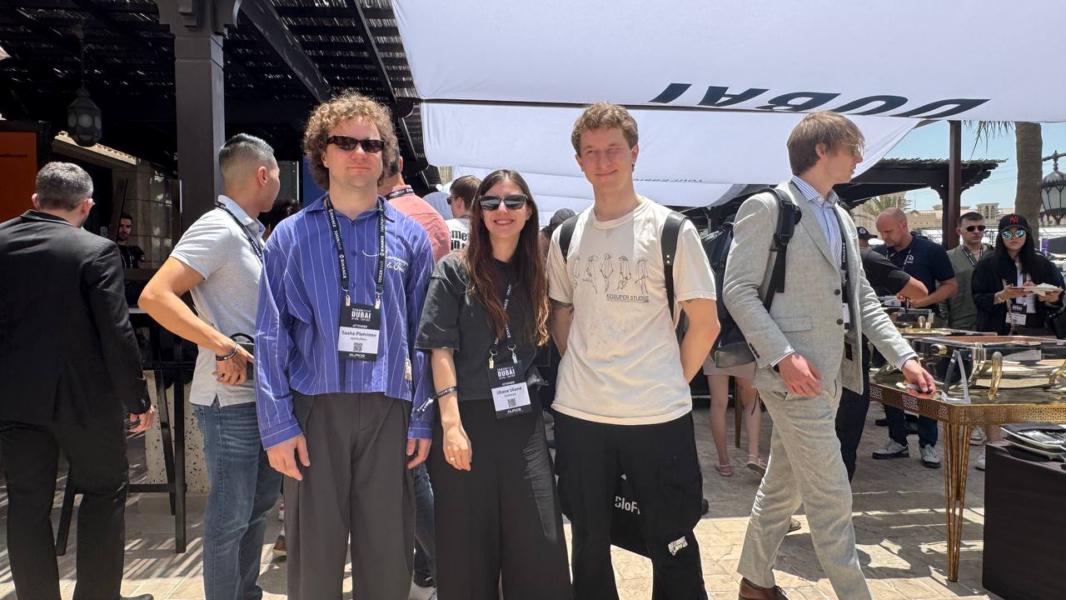## The Crypto Game Revolution: From Tap-to-Earn to Telegram’s Takeover
Remember the hype around “tap-to-earn” games? They promised a golden age of passive income, where simply clicking a button could rake in crypto riches. Well, the party may be over.
Notcoin, a prominent figure in the crypto gaming space, has declared tap-to-earn “probably dead,” signaling a potential shift in the industry. Meanwhile, a new contender is rising: Telegram games.

Could this be the dawn of a new era for blockchain gaming? Or is this just another dead end on the road to mainstream adoption? We dive deep into the latest developments, exploring what’s happening with Notcoin, the rise of Telegram games, and what it all means for your gaming wallet.

Challenges and Opportunities in Game Development
The Challenges of Developing Games That Are Both Fun and Profitable

The gaming industry is a competitive landscape, and developers face numerous challenges in creating both enjoyable and financially successful games. One of the primary obstacles is balancing the need for engaging gameplay with monetization strategies. The pursuit of profit can sometimes compromise the core experience, leading to frustrating or pay-to-win mechanics that alienate players.
Another challenge is the ever-evolving technological landscape. Game development requires constant adaptation to new hardware, software, and design trends. Staying ahead of the curve demands significant investment in research and development, as well as a skilled and adaptable team.
The Opportunities for Innovation and Growth in the Web3 Gaming Space
Despite these challenges, the Web3 gaming space presents exciting opportunities for innovation and growth. Blockchain technology enables new models of ownership, monetization, and community engagement. Players can truly own their in-game assets, which can be traded, sold, or used in other games. This opens up possibilities for a more decentralized and player-driven gaming ecosystem.
Furthermore, the integration of Web3 technologies like NFTs and DAOs (Decentralized Autonomous Organizations) allows for novel gameplay mechanics and community governance structures. Players can have a direct say in the development and direction of games, fostering a sense of ownership and shared responsibility.
The Importance of Expertise and Experience in Game Development
The successful development of Web3 games requires a unique blend of expertise and experience. Traditional game development skills, such as game design, programming, and art, are essential. However, a deep understanding of blockchain technology, cryptography, and decentralized systems is also crucial.
Experienced developers who can bridge the gap between these two domains are in high demand. The ability to create engaging gameplay while leveraging the unique opportunities of Web3 is key to building successful projects.
The Future of Web3 Gaming on Telegram
Market Potential and Exponential Growth
Telegram, with its massive user base and established messaging platform, presents a fertile ground for Web3 gaming. Gamestanza analysts estimate that Telegram boasts over 700 million monthly active users, offering a vast potential market for developers. This figure rivals giants like Facebook and WeChat, which already have thriving gaming ecosystems.
The exponential growth of the Web3 gaming industry, coupled with Telegram’s user base, suggests a promising future for this platform. However, success hinges on addressing the specific motivations and behaviors of Telegram users.
The Role of AI in Web3 Gaming Development
Artificial intelligence (AI) is poised to revolutionize game development, and Web3 gaming on Telegram is no exception. AI-powered tools can automate repetitive tasks, optimize game design, and personalize player experiences. This can lead to faster development cycles, more efficient resource allocation, and ultimately, better games.
For example, AI can be used to generate procedural content, such as levels, quests, and items, reducing the workload on developers and enabling more dynamic and replayable gameplay. AI-driven chatbots can also enhance player interaction and provide personalized support.
Innovation and Growth in the Web3 Gaming Space
The future of Web3 gaming on Telegram hinges on continuous innovation and addressing the needs of players. While tap-to-earn games may have reached their peak, the core principles of player ownership, community engagement, and transparent economies remain relevant.
Developers must focus on creating engaging and immersive experiences that go beyond simple token acquisition. Games that foster social interaction, provide meaningful challenges, and offer long-term value will thrive in this evolving landscape.
Conclusion
So, is the “tap-to-earn” model truly fading away? Notcoin’s declaration of its probable demise, coupled with the observed shift in Telegram’s gaming landscape, certainly points towards a significant paradigm shift in the play-to-earn space. The article highlights the inherent limitations of simple, passive earning models, exposing them as unsustainable and often exploitative. This sentiment is echoed by Telegram’s move towards more complex, engaging, and skill-based games, suggesting a future where true player value is derived from engagement and contribution, not merely tapping a screen.
This evolution signifies a crucial moment for the blockchain gaming industry. While the initial wave of “get-rich-quick” schemes may be waning, the true potential of blockchain technology in gaming remains vast. Games built on genuine gameplay, community engagement, and player ownership will likely thrive, offering a richer and more rewarding experience for everyone involved. The future belongs to games that prioritize fun and meaningful interactions, leaving behind the shallow promises of easy money.
This isn’t the end of play-to-earn, but rather its transformation. The industry is maturing, moving towards a future where value is earned through skill, creativity, and active participation. As players, we have the opportunity to embrace this evolution, demanding more from our gaming experiences and shaping a future where fun and value truly intersect. The next generation of blockchain games will be defined not by what you can earn passively, but by what you can achieve actively. Are you ready to play?